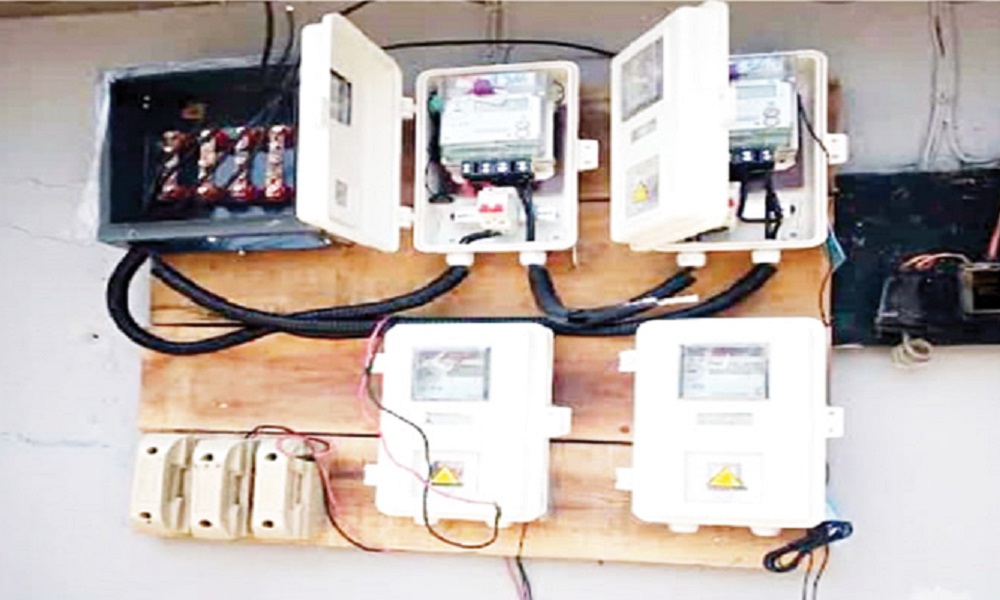News
Govt releases power tariff hike guidelines for Discos

As controversies trailed the purported electricity tariff hike by the Federal Government, the Nigerian Electricity Regulatory Commission has issued regulations on the procedure for tariff reviews.
The latest order, signed by NERC Chairman, Sanusi Garba, stated that pursuant to the provisions of the Electricity Act 2023, the commission is obligated to review and approve a fair tariff to allow licensees to recover prudent costs and a reasonable return on capital invested in the business for the provision of electricity services.
It stated that Section 116(1) of the Act provides that activities in the generation, transmission, distribution, trading, supply, system operation, and electricity distribution franchising shall be subject to tariff regulation, saying Section 116(2) further provides for the commission to develop a tariff methodology that allows licensees operating efficiently to recover the full efficient costs of their business activities, plus a reasonable return on investments by shareholders.
“In exercise of the powers conferred in Section 116 of the Act, the commission has developed and adopted the Multi-Year Tariff Order Methodology as an incentive-based price regulation framework for the determination and projection of tariffs payable in the Nigerian Electricity Supply Industry,”
NERC stressed that the Multi-Year Tariff Order methodology provides for a major review of electricity tariffs every five years, during which all tariff assumptions are reviewed to ensure the industry’s viability and efficiency.
One year before the major tariff hike, the commission said it would issue a notice to all licensees about its intention while requesting them to submit applications for the review of tariffs supported with necessary documentation within 120 days of the notice.
“The commission shall, one year before the expiration of the major tariff review order in force or as may be considered necessary, issue a notice to all licensees about its intention to commence the process for a major review of the existing tariff. The notice shall be published in three national dailies and on the website of the commission.
“The Notice shall request for submission of applications for the review of tariffs supported with documentation that includes but not limited to audited financial statements, budgets, investment plans (in line with prevailing guidelines on Performance Improvement Plans), and proof of wide consultation with customers in the licensees’ service area concerning the proposed filing of the application for tariff review and any other information as deemed necessary by the commission,” the regulation stated.
The regulator said an initial review of the applications shall be completed and a consultation paper developed no later than 90 days after the deadline for the submission of the applications.
“The consultation paper developed by the commission shall outline the basis for the tariff review applications by the licensees including their proposals on capital investments, service improvements, new connections, loss reductions, reset of tariff assumptions if any, and possible impact on rates payable by the affected customers.
“The consultation paper shall be published on the commission’s website and public notices issued soliciting comments with a timeline of 21 days for submission by stakeholders. The commission shall within 90 days from the publication of the consultation paper review all comments and schedule and conclude a Rate Case Hearing, having regard to the stakeholders’ responses to the consultation paper,” the regulation stated.
It was stated that all comments and observations received from the public on the consultation paper and the Rate Case Hearing shall be examined and considered in the development of a draft tariff order for the consideration of the commission.
Upon due consideration of the outcomes of the general stakeholders’ presentation and the Rate Case Hearing, the commission said it shall consider and approve a Major Tariff Review Order within 30 days from the date of the Rate Case Hearing held at the commission.
“Any licensee whose tariffs have been reviewed shall communicate the outcome of the tariff review to its customers vide its website and other communication channels,” it said.
For monthly or minor reviews, the commission said it shall review the prevailing operating end-user tariffs and changes may be made thereto to account for changes in generation fuel costs, the Nigerian and United States inflation rates, United States dollar exchange rate to the naira, and average generation availability relative to the preceding month.
The commission also stated that it may, at its discretion, conduct a minor review of end-user tariffs at other short periods but no longer than six months.
The Special Adviser to President Bola Tinubu on Energy, Olu Verheijen, has said there would be an electricity tariff review in a few months.
Verheijen said the current N200bn monthly electricity subsidy benefits only the wealthiest 25 per cent, leaving the poor masses in the dark.
She said the government would put in place a subsidy system that works for the masses.
“Today, the Federal Government spends over N200bn per month on electricity subsidies, but much of this support benefits the wealthiest 25 per cent of Nigerians rather than those who truly need assistance. To address this, the Federal Government is working towards a targeted subsidy system to ensure that low-income households receive the most support. This approach will make electricity more affordable and accessible for millions of hardworking families,” she stated.
News
A Chat with Janet Odio Okolo: A Mother’s Journey Raising a Child with Down Syndrome

News
Hon. Nnamchi Begins Street Lights Deployment In Isi Uzo(Photos)

Honourable Paul Sunday Nnamchi, representing Enugu East/Isi Uzo Federal Constituency in the 10th House of Representatives, has fulfilled his promise to illuminate communities in Isi Uzo Local Government Area.
The lawmaker has just begun the deployment of high-density solar-powered street lights in Ikem Nkwo, marking the beginning of a massive rollout of the street lamps across the communities in Isi Uzo.
This initiative, which started in Enugu East Local Government Area in 2024, aims to support the fight against insecurity in the state which according to him was to add to what Chief Security Officer of Enugu State Barrister Peter Mba had done to secure the state to attracts foreign investments.
The lawmaker expressed concern over banditry attacks, particularly by herdsmen, in some communities within Isi Uzo and Enugu East Local Government Areas in the recent pasts.
He believes that illuminating these areas with high-density street lights would help address the insecurity adding that he was prioritizing border and farming communities in Isi Uzo, where banditry has displaced residents and restricted farming activities.
Communities in Ikem, Eha-Amufu in Isi Uzo which borders Enugu and Benue State and Ugwogo-Nike in Enugu East have been vulnerable to these attacks due to their strategic locations.
News
May Day: Kalu Hails Workers, Applauds Their Role in Nation Building

By Gloria Ikibah
Deputy Speaker of the House of Representatives, Rep. Benjamin Kalu, has extended warm wishes to Nigerian workers as the country marks the 2025 edition of International Workers’ Day.
Kalu praised workers across various sectors for their commitment and resilience, describing them as the engine that keeps the nation moving. He acknowledged their sacrifices and unrelenting drive, especially during tough economic times.
In his message, he highlighted the efforts of the current administration under President Bola Tinubu to improve the welfare of public servants. He referenced the National Assembly’s prompt backing of the new minimum wage as a sign of the government’s seriousness about workers’ wellbeing.
The Deputy Speaker appealed for continued patience and understanding from Nigerians, noting that the ongoing economic reforms, while challenging, are designed to bring long-term relief and prosperity.
Kalu also called for unity, and said the country can only overcome its present difficulties if citizens and leaders work together in good faith.
He therefore urged workers to keep the faith and remain steadfast in their duties, assuring them that brighter days are on the horizon, and wished Nigerian workers a peaceful and fulfilling May Day celebration.
-

 Metro19 hours ago
Metro19 hours agoGunmen storm University of Benin teaching hospital, kill doctor
-

 Metro20 hours ago
Metro20 hours agoFCTA destroys 601 motorbikes over violations
-

 News11 hours ago
News11 hours agoAlleged money laundering: EFCC produces Aisha Achimugu in court
-

 News19 hours ago
News19 hours agoJust in: FG declares tomorrow public holiday
-

 News13 hours ago
News13 hours agoJUST IN: Major General Paul Ufuoma Omu Rtd, dies at 84
-

 News12 hours ago
News12 hours agoTinubu hails Dangote’s World Bank appointment
-

 News15 hours ago
News15 hours agoSAD! Professor’s son takes own life inside varsity staff quarters
-

 News19 hours ago
News19 hours agoFull list: FG approves N110bn to rehabilitate medical schools 18 institutions























